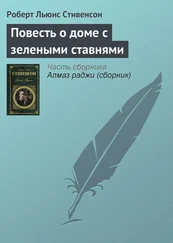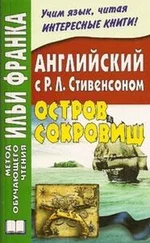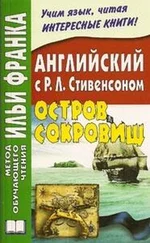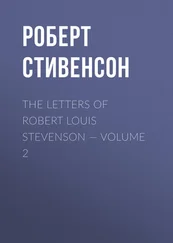Роберт Стивенсон - Vailima Letters
Здесь есть возможность читать онлайн «Роберт Стивенсон - Vailima Letters» — ознакомительный отрывок электронной книги совершенно бесплатно, а после прочтения отрывка купить полную версию. В некоторых случаях можно слушать аудио, скачать через торрент в формате fb2 и присутствует краткое содержание. Жанр: literature_19, foreign_antique, foreign_prose, на английском языке. Описание произведения, (предисловие) а так же отзывы посетителей доступны на портале библиотеки ЛибКат.
- Название:Vailima Letters
- Автор:
- Жанр:
- Год:неизвестен
- ISBN:нет данных
- Рейтинг книги:5 / 5. Голосов: 1
-
Избранное:Добавить в избранное
- Отзывы:
-
Ваша оценка:
- 100
- 1
- 2
- 3
- 4
- 5
Vailima Letters: краткое содержание, описание и аннотация
Предлагаем к чтению аннотацию, описание, краткое содержание или предисловие (зависит от того, что написал сам автор книги «Vailima Letters»). Если вы не нашли необходимую информацию о книге — напишите в комментариях, мы постараемся отыскать её.
Vailima Letters — читать онлайн ознакомительный отрывок
Ниже представлен текст книги, разбитый по страницам. Система сохранения места последней прочитанной страницы, позволяет с удобством читать онлайн бесплатно книгу «Vailima Letters», без необходимости каждый раз заново искать на чём Вы остановились. Поставьте закладку, и сможете в любой момент перейти на страницу, на которой закончили чтение.
Интервал:
Закладка:
Example of the farmer’s sorrows. I slipped out on the balcony a moment ago. It is a lovely morning, cloudless, smoking hot, the breeze not yet arisen. Looking west, in front of our new house, I saw, two heads of Indian corn wagging, and the rest and all nature stock still. As I looked, one of the stalks subsided and disappeared. I dashed out to the rescue; two small pigs were deep in the grass – quite hid till within a few yards – gently but swiftly demolishing my harvest. Never be a farmer.
12.30 p. m.I while away the moments of digestion by drawing you a faithful picture of my morning. When I had done writing as above it was time to clean our house. When I am working, it falls on my wife alone, but to-day we had it between us; she did the bedroom, I the sitting-room, in fifty-seven minutes of really most unpalatable labour. Then I changed every stitch, for I was wet through, and sat down and played on my pipe till dinner was ready, mighty pleased to be in a mildly habitable spot once more. The house had been neglected for near a week, and was a hideous spot; my wife’s ear and our visit to Apia being the causes: our Paul we prefer not to see upon that theatre, and God knows he has plenty to do elsewhere.
I am glad to look out of my back door and see the boys smoothing the foundations of the new house; this is all very jolly, but six months of it has satisfied me; we have too many things for such close quarters; to work in the midst of all the myriad misfortunes of the planter’s life, seated in a Dyonisius’ (can’t spell him) ear, whence I catch every complaint, mishap and contention, is besides the devil; and the hope of a cave of my own inspires me with lust. O to be able to shut my own door and make my own confusion! O to have the brown paper and the matches and ‘make a hell of my own’ once more!
I do not bother you with all my troubles in these outpourings; the troubles of the farmer are inspiriting – they are like difficulties out hunting – a fellow rages at the time and rejoices to recall and to commemorate them. My troubles have been financial. It is hard to arrange wisely interests so distributed. America, England, Samoa, Sydney, everywhere I have an end of liability hanging out and some shelf of credit hard by; and to juggle all these and build a dwelling-place here, and check expense – a thing I am ill fitted for – you can conceive what a nightmare it is at times. Then God knows I have not been idle. But since The Master nothing has come to raise any coins. I believe the springs are dry at home, and now I am worked out, and can no more at all. A holiday is required.
Dec. 28 th . I have got unexpectedly to work again, and feel quite dandy. Good-bye.
R. L. S.CHAPTER IV
My dear Colvin, – The Faamasino Sili, or Chief Justice, to speak your low language, has arrived. I had ridden down with Henry and Lafaele; the sun was down, the night was close at hand, so we rode fast; just as I came to the corner of the road before Apia, I heard a gun fire; and lo, there was a great crowd at the end of the pier, and the troops out, and a chief or two in the height of Samoa finery, and Seumanu coming in his boat (the oarsmen all in uniform), bringing the Faamasino Sili sure enough. It was lucky he was no longer; the natives would not have waited many weeks. But think of it, as I sat in the saddle at the outside of the crowd (looking, the English consul said, as if I were commanding the manœuvres), I was nearly knocked down by a stampede of the three consuls; they had been waiting their guest at the Matafele end, and some wretched intrigue among the whites had brought him to Apia, and the consuls had to run all the length of the town and come too late.
The next day was a long one; I was at a marriage of G. the banker to Fanua, the virgin of Apia. Bride and bridesmaids were all in the old high dress; the ladies were all native; the men, with the exception of Seumanu, all white.
It was quite a pleasant party, and while we were writing, we had a bird’s-eye view of the public reception of the Chief Justice. The best part of it were some natives in war array; with blacked faces, turbans, tapa kilts, and guns, they looked very manly and purposelike. No, the best part was poor old drunken Joe, the Portuguese boatman, who seemed to think himself specially charged with the reception, and ended by falling on his knees before the Chief Justice on the end of the pier and in full view of the whole town and bay. The natives pelted him with rotten bananas; how the Chief Justice took it I was too far off to see; but it was highly absurd.
I have commemorated my genial hopes for the regimen of the Faamasino Sili in the following canine verses, which, if you at all guess how to read them, are very pretty in movement, and (unless he be a mighty good man) too true in sense.
We’re quarrelling, the villages, we’ve beaten the wooden drum’s,
Sa femisai o nu’u, sa taia o pate,
Is expounded there by the justice,
Ua Atuatuvale a le faamasino e,
The chief justice, the terrified justice,
Le faamasino sili, le faamasino se,
Is on the point of running away the justice,
O le a solasola le faamasino e,
The justice denied any influence, the terrified justice,
O le faamasino le ai a, le faamasino se,
O le a solasola le faamasino e.
Well, after this excursion into tongues that have never been alive – though I assure you we have one capital book in the language, a book of fables by an old missionary of the unpromising name of Pratt, which is simply the best and the most literary version of the fables known to me. I suppose I should except La Fontaine, but L. F. takes a long time; these are brief as the books of our childhood, and full of wit and literary colour; and O, Colvin, what a tongue it would be to write, if one only knew it – and there were only readers. Its curse in common use is an incredible left-handed wordiness; but in the hands of a man like Pratt it is succinct as Latin, compact of long rolling polysyllables and little and often pithy particles, and for beauty of sound a dream. Listen, I quote from Pratt – this is good Samoan, not canine —

1 almost wa , 2 the two a’s just distinguished, 3 the ai is practically suffixed to the verb, 4 almost vow . The excursion has prolonged itself.
I started by the Lübeck to meet Lloyd and my mother; there were many reasons for and against; the main reason against was the leaving of Fanny alone in her blessed cabin, which has been somewhat remedied by my carter, Mr. – , putting up in the stable and messing with her; but perhaps desire of change decided me not well, though I do think I ought to see an oculist, being very blind indeed, and sometimes unable to read. Anyway I left, the only cabin passenger, four and a kid in the second cabin, and a dear voyage it had like to have proved. Close to Fiji (choose a worse place on the map) we broke our shaft early one morning; and when or where we might expect to fetch land or meet with any ship, I would like you to tell me. The Pacific is absolutely desert. I have sailed there now some years; and scarce ever seen a ship except in port or close by; I think twice. It was the hurricane season besides, and hurricane waters. Well, our chief engineer got the shaft – it was the middle crank shaft – mended; thrice it was mended, and twice broke down; but now keeps up – only we dare not stop, for it is almost impossible to start again. The captain in the meanwhile crowded her with sail; fifteen sails in all, every stay being gratified with a stay-sail, a boat-boom sent aloft for a maintop-gallant yard, and the derrick of a crane brought in service as bowsprit. All the time we have had a fine, fair wind and a smooth sea; to-day at noon our run was 203 miles (if you please!), and we are within some 360 miles of Sydney. Probably there has never been a more gallant success; and I can say honestly it was well worked for. No flurry, no high words, no long faces; only hard work and honest thought; a pleasant, manly business to be present at. All the chances were we might have been six weeks – ay, or three months at sea – or never turned up at all, and now it looks as though we should reach our destination some five days too late.
Читать дальшеИнтервал:
Закладка:
Похожие книги на «Vailima Letters»
Представляем Вашему вниманию похожие книги на «Vailima Letters» списком для выбора. Мы отобрали схожую по названию и смыслу литературу в надежде предоставить читателям больше вариантов отыскать новые, интересные, ещё непрочитанные произведения.
Обсуждение, отзывы о книге «Vailima Letters» и просто собственные мнения читателей. Оставьте ваши комментарии, напишите, что Вы думаете о произведении, его смысле или главных героях. Укажите что конкретно понравилось, а что нет, и почему Вы так считаете.









